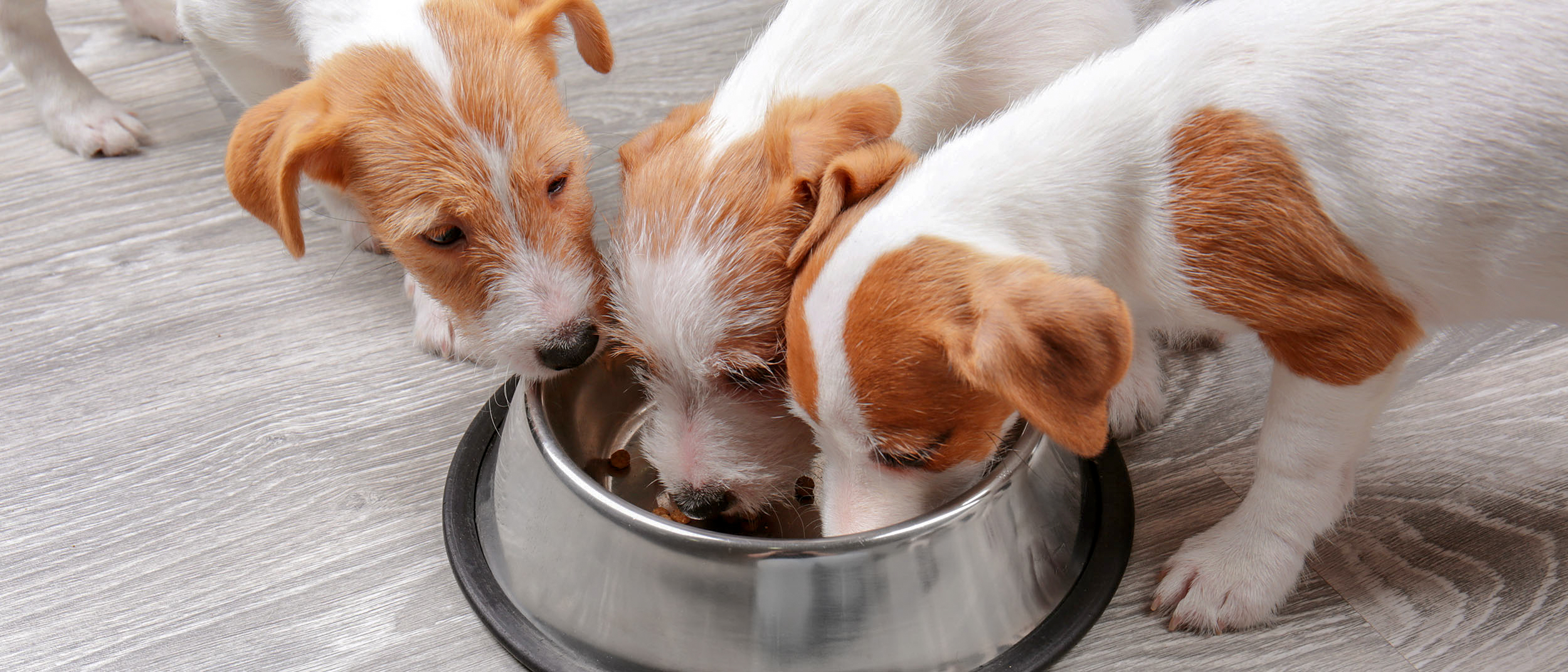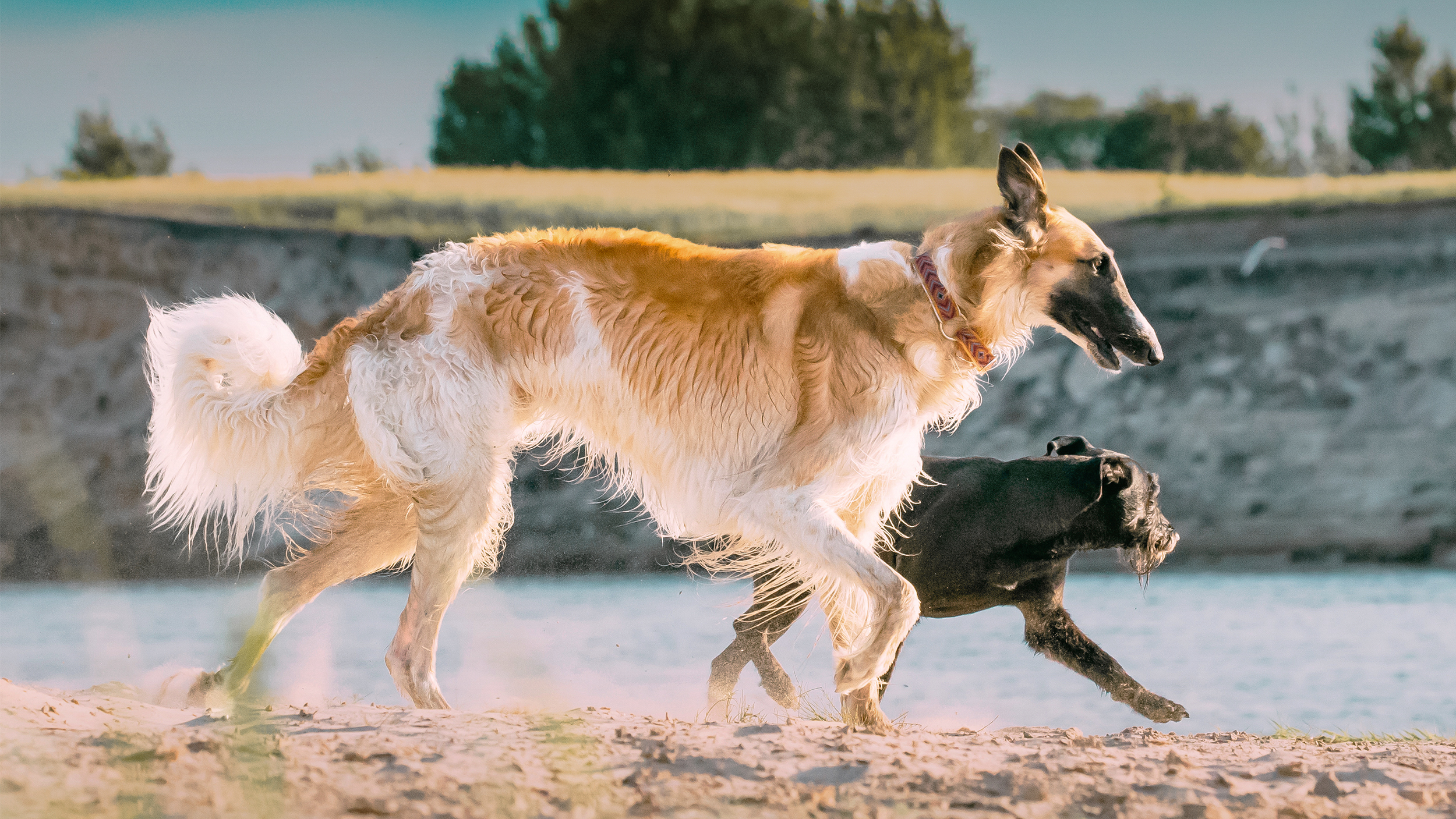Чиме да храните штене

После првог месеца живота вашег штенета, можете почети да га одбијате од мајчиног млека и привикавате на чврсту храну. Али шта треба да узмете у обзир приликом одабира његове прве хране?
Величина и раса паса
Раса и величина вашег штенета су два најважнија елемента о којима треба размишљати приликом одабира прве хране. Многе расе имају специфичне енергетске и здравствене потребе, а храна прилагођена прехрамбеним потребама вашег штенета на овај начин ће осигурати да добије све што му је потребно за здрав живот.
Величина вашег пса има значајан утицај на врсту хране која му је потребна и снажан утицај на то како једе, вари и реагује на различиту храну. Постоји пет различитих величина паса:
- Изузетно мали – чија је тежина до 4 кг када одрасту
- Мали – чија је тежина до 10 кг када одрасту
- Средњи – чија је тежина између 11 кг и 25 кг када одрасту
- Велики – чија је тежина одрасле особе од 26-45 кг
- Џиновски – има тежину одрасле јединке преко 45 кг
Обавезно одаберите прву храну за штенце у складу са њиховом вероватном тежином када одрасту (што можете сазнати на основу њихове расе и у разговору са ветеринаром). Храна ће бити направљена посебно да задовољи здравствене потребе паса у тој категорији, што значи да ћете свом штенету пружити најбољи могући почетак.

Нутритивни захтеви
Специфична енергија, одржавање и здравствена подршка који су потребни вашем штенету кроз исхрану зависе од расе и величине.
Изузетно мали и мали пси имају слабије чељусти и мање зубе од већих паса, тако да храна која им је потребна мора бити одговарајуће величине и текстуре да би могли лако да је жваћу. Такође је потребно да буде лако рехидрирана за време одвикавања од сисања.
Средњи пси обично проводе пуно времена на отвореном, па храна треба да им даје одговарајуће нивое енергије и изгради природне одбрамбене механизме. То обухвата њихову кожу и крзно, који служе као важна препрека за бубице и болести.
Велики и џиновски пси расту спорије од мањих паса и развијају мишиће касније у фази раста. Потребна им је храна која подржава овај одрживи раст, док истовремено има текстуру и облик одговарајуће величине за њихова уста како би подстакла дробљење и успорила брзину једења.
Заштита од потенцијалних здравствених проблема
Сви штенци имају осетљив систем за варење услед напрезања због брзог раста, а то може бити нарочито случај код већих паса. Најбоља храна за њих ће имати праву нутритивну равнотежу, а биће дизајнирана тако да буде што лакше сварљива.
Мањи пси могу патити од проблема са зубима, као што је накупљање тартара – а сви штенци, без обзира на њихову величину, морају да одржавају добру хигијену зуба. Грануле одговарајуће величине вам могу помоћи у томе, јер подстичу штенце да жваћу.
Велики и џиновски пси ризикују од напрезања зглобова или стреса током фазе раста, јер брзо изграђују мишиће на великом костуру, па је добра прва храна за њих она која садржи хранљиве састојке који подржавају здравље зглобова.
Свим псима, без обзира на величину, потребна је подршка за имунитет у доби од четири до 12 недеља, када се налазе у „имунитетском прозору“ – више не добијају подршку од мајчиног млека, али још увек нису у стању да задрже сопствени имунолошки одбрамбени механизам. Свака прва храна коју одаберете за штене би требало да буде подршка њиховом имуном систему током овог пресудног времена.
Додатна литература
Прилагођена исхрана за ваше штене
Палета храна које помажу у изградњи њиховог природном имунитета, подржавају здрав раст и развој система за варење.
Лајкуј и подели страницу